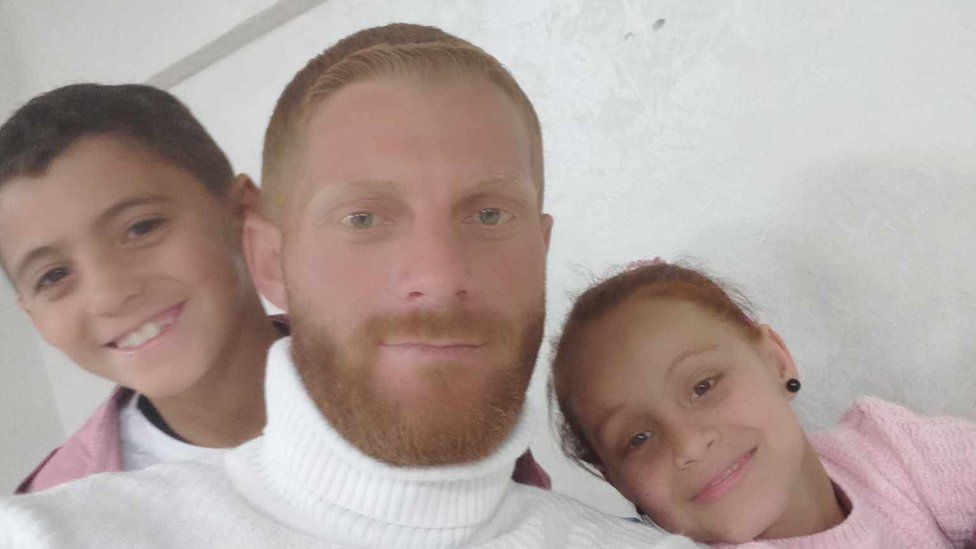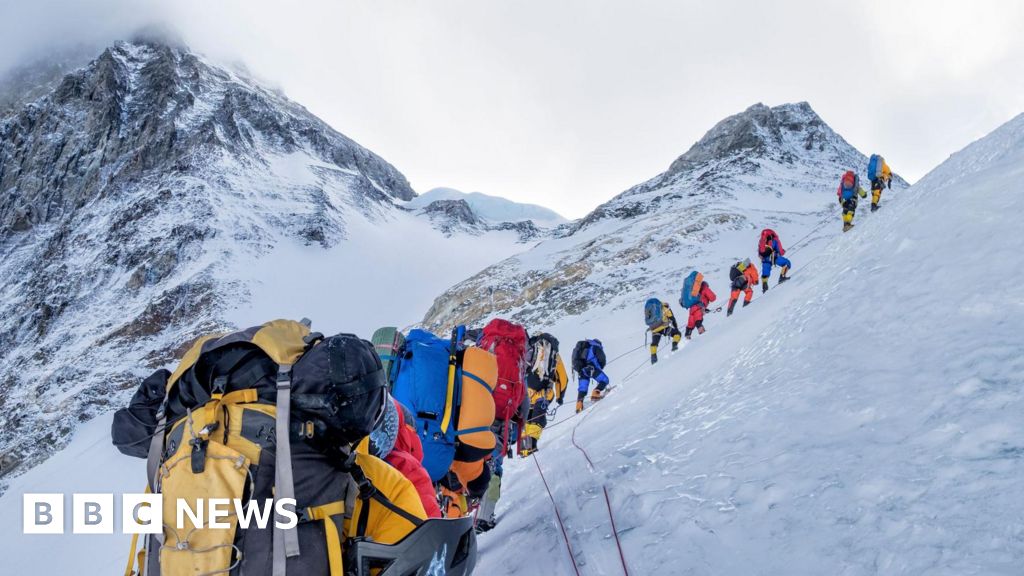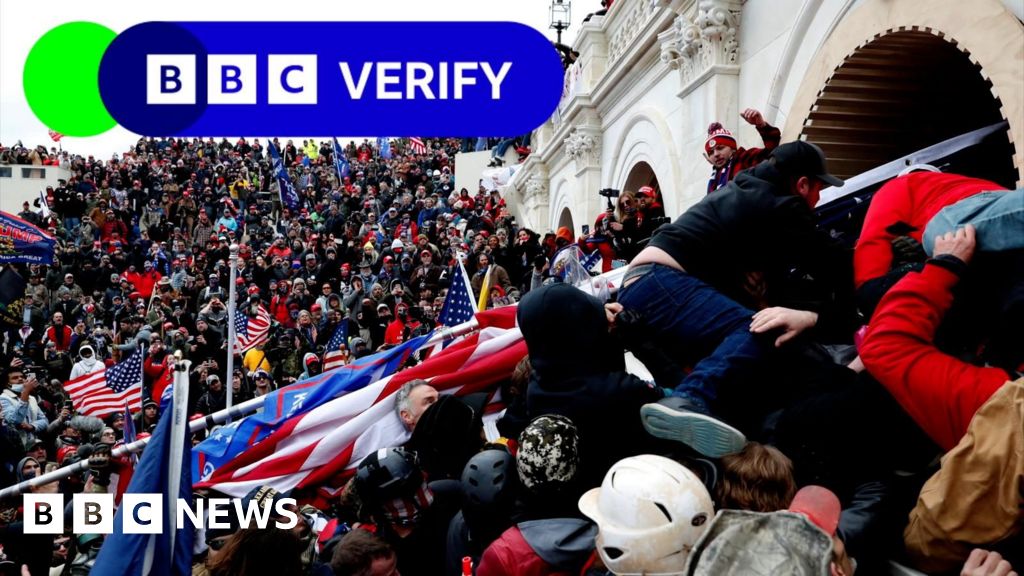ARTICLE AD BOX
 Image source, Al-Najjar family
Image source, Al-Najjar family
Abed-Alrahman al-Najjar was killed on 12 February
By Fergal Keane
BBC News, Jerusalem
When Israeli special forces rescued two of the hostages kidnapped by Hamas, there was relief for their families and a boost for national morale. But the rescue on 12 February has left angry feelings in Gaza, where more than 70 people were reported killed on the night.
Warning: Readers may find some of the details below distressing.
Nawara al-Najjar was asleep in the tent that had been her family's home in Rafah for the last five weeks, just a few hundred metres away from the site of the rescue raid.
Lying on the ground were Nawara, who is six months pregnant, her six children - ranging in age from 13 to four - and her husband Abed-Alrahman.
They had fled from their home in Khan Younis, about 9km (six miles) north, following the instructions of the Israel Defense Forces who said Rafah was a safe area.
Before falling asleep, the couple discussed what to do about two of their children who had been injured. Their son had been burned by scalding food, and their daughter was recovering from facial paralysis caused by trauma in the early stages of the war.
Before they became refugees, Abed-Alrahman did whatever work he could find to support his family, often as a labourer on farms.
They were a strong couple who always tried to solve problems together.
"My husband was anxious, thinking about how he would find a way to treat them and where to take them," Nawara says. "Our neighbours said they wanted to take my daughter to a doctor for treatment… So, we decided that he would be in charge of our son, and I would be in charge of my daughter."
Then something unusual happened. Nawara usually slept surrounded by the children. But that night, Abed-Alrahman asked to change the arrangement. "Before he went to sleep, he asked me to come and sleep next to him. It was the first time he said, 'Come sleep with me'."
They fell into the exhausted sleep of refugee life. Then shortly before 02:00 (00:00 GMT), Nawara woke to the sound of shooting.
Abed-Alrahman said he would go out and see what was happening.
Nawara says: "Our oldest son was telling him, 'Dad, please don't go out'. [Abed-Alrahman] was trying to reassure him that nothing would happen; my son was telling him not to go out, that he would die."
Then she felt a searing pain in her head. Shrapnel from an explosion had ripped into the tent.
Nawara started screaming. At first she could not see anything. After some minutes her vision returned in time to see Abed-Alrahman in his death throes. She remembers the "rattle" of his final breaths.
"When my children first saw him, they were screaming, 'Oh, father, oh father, don't leave us, don't leave us'. I told them, 'Stay away from your father. Just pray for him'."
Daughter Malak, aged 13, was hit in the eye by a splinter of shrapnel. Four other children sustained minor wounds. They also endured the trauma of what they heard and saw - the explosions and their father being carried away to hospital. Later that night, in a hospital filled with other victims, it was confirmed to Nawara that Abed-Alrahman was dead.
Weeping, she asks: "What was his sin? What was his children's sin? What's my sin? I became a widow at 27.
Malak says she was taken to three different hospitals to try and get treatment, but she lost her eye.
"I was not treated immediately. Only after three days was my surgery performed. I was injured in the eye and I was also shot in my waist. I'm in pain, pain, pain."
Then Malak became distraught, and cried out: "I lost my dad. Enough!"
Malak al-Najjar, aged 13, lost an eye on the same night of the Israeli military raid
According to the health ministry, run under the direction of the Hamas government in Gaza, at least 74 people were killed during the raid in the early hours of 12 February.
It is not possible to say precisely how many of the dead were civilians and how many were fighters. But witnesses and medical sources suggest a high proportion of the dead were non-combatants. The independent Palestinian Centre for Human Rights, based in Gaza, using details obtained from hospital lists, says 27 children and 22 women were among those killed.
Mohammed al-Zaarab, 45, a father-of-10 from Khan Younis, also fled to Rafah believing it would be safe. He remembers being woken in his tent by the intensity of the assault. "They were shelling with helicopters, with F-16 jets …My son was shot in his hand. Our neighbour was shot in the head."
The following day, Mohammed's elderly father felt unwell. He took him to the doctor, but soon after the old man died of a heart attack. "I buried him. Today is the third day in his grave. Why is this happening to us?" he asks.
The International Medical Corps - which provides emergency aid in crisis zones around the world - runs a field hospital near the scene. Dr Javed Ali, a surgeon from Pakistan, was jolted awake by the first strikes and went to shelter in a safe room in the staff quarters near the hospital.
"Aside from the air strikes, we were hearing tanks in the background, there was active exchange of fire from small firearms, as well as a helicopter gunship that was going over the hospital fighting and firing in all directions. So, it was very, very scary. We thought that this was it."
Hearing the sound of ambulances, the medics decided to leave the safe room and help. Along with the wounded came women and children seeking shelter.
"The hospital itself is a tent structure. So there were a lot of concerns. Obviously, if there is any strike towards the hospital it will be devastating, but we had to make a decision to save as many patients as possible."
Nawara al-Najjar, sitting with some of her children, was injured by shrapnel that ripped into her tent on 12 February
Many of the dead were thought to be still lying under the rubble of destroyed houses. Another doctor - from the international agency Médecins Sans Frontières - sent a series of anguished voice messages to colleagues in London after sunrise on 12 February.
She described lying across her children's bodies to protect them as shrapnel flew through the windows of the room where they were sheltering. The doctor has given the BBC permission to quote the messages but wants to remain anonymous.
Her account of what she found after the raid is harrowing.
"At our home when we were checking, I found pieces of human flesh. We found a whole lower limb belonging to a human that we don't know who he is. When I saw the pieces of flesh on the floor, I cried."
Since the beginning of the IDF incursion into Gaza, the military has accused Hamas of using the civilian population as human shields, and using medical facilities to conceal military operations and hide hostages.
The rescue of two hostages - Fernando Simon Marman, 60, and Louis Har, 70 - in Rafah this month was a rare success for the Israeli teams searching for more than 130 people, including two children, still believed to be held captive.
In a statement to the BBC about the events of 12 February, an IDF spokesman said it was "committed to mitigating civilian harm" during military operations. Military lawyers advised commanders so that strikes complied with international legal obligations.
The statement says: "This process is designed to ensure that senior commanders have all reasonably available information and professional advice that will ensure compliance with the Law of Armed Conflict, including by providing 'Target Cards' which facilitate an analysis that is conducted on a strike-by-strike basis, and takes into account the expected military advantage and the likely collateral civilian harm, amongst other matters.
"Even where circumstances do not allow for a targeting process involving this level of deliberate pre-planning and pre-approval, IDF regulations emphasise that commanders and soldiers must still comply with the Law of Armed Conflict."
Image source, @bringhomenow
Image caption,Israeli hostages Fernando Simon Marman and Louis Har were reunited with their families shortly after being rescued on 12 February
Human rights organisations have previously accused Israel of using disproportionate force. In a statement on 8 February - four days before the hostage raid - Human Rights Watch warned that Israel "might be carrying out unlawfully indiscriminate attacks. When it comes to the question of whether Israel is violating the law in Gaza, there is enough smoke to suspect a fire".
In December US President Joe Biden warned Israel against "indiscriminate bombing" in Gaza.
Any legal deliberation on whether the raid constituted a disproportionate use of force, and therefore a war crime, must await an independent investigation. With no end to the war in sight, that process may take a long time.
The anonymous MSF doctor who found body parts in her home is deeply pessimistic.
"To be honest, the one who died is the one who is lucky… the one who is left has been cursed and abandoned by all people around the world. It's not fair… I don't know how anybody can sleep knowing that our kids are suffering for nothing. We are only civilians."
Her message comes from inside the frightened, claustrophobic confines of Rafah, where 1.5 million people - six times its normal population - have sought shelter.
Israel is threatening an invasion of Rafah in the next few weeks, necessary, it says, to destroy Hamas. The fear for the refugees is that the horror of 12 February will soon be overtaken by new miseries, and forgotten by the international community.
"I know that this message means nothing to a lot of people," the MSF doctor says, "and will change nothing".
With additional reporting by Alice Doyard, Haneen Abdeen and Gidi Kleiman.

 11 months ago
45
11 months ago
45








 English (US) ·
English (US) ·